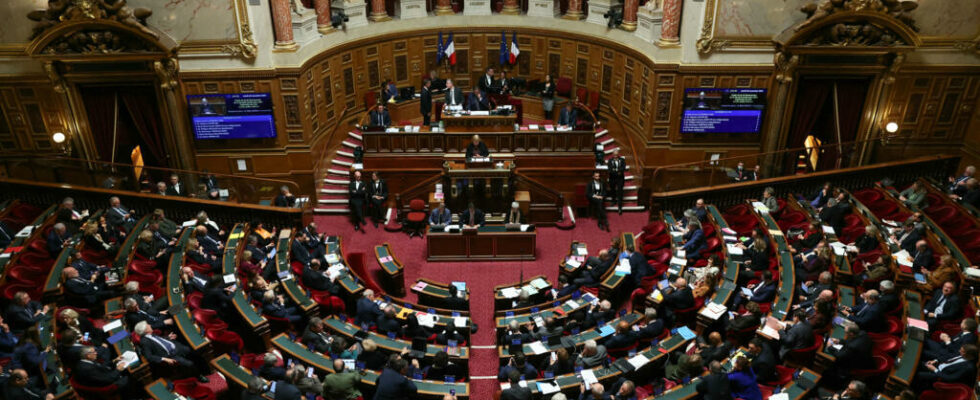After the censure of Michel Barnier’s government, Parliament definitively voted this Wednesday, December 18, a “special law” which authorizes the executive to collect taxes and borrow to finance the State and Social Security.
3 mins
There will be no French-style “shutdown”. Unsurprisingly, the senators unanimously approved the “special law” by the 345 voters, without modifying the version adopted two days earlier by the deputies. Its promulgation in extremis before December 31 is therefore assured.
Pending the constitution of a full-fledged government around François Bayrou and above all a real budget for the year 2025, Parliament is responding to the most pressing needs with this atypical bill, which authorizes the executive to collect taxes and borrow to finance the State and Social Security.
“ This special law gives everything the state needs to carry out its essential functions by early 2025, but nothing more. It must be completed as quickly as possible » by a budget, however estimated the general rapporteur of the finance committee in the Senate, Jean-François Husson (Les Républicains).
Also readFrance: what is the “special law” for the 2025 budget, announced by Emmanuel Macron?
As in the National Assembly, the debates revolved around the question of the “censorship bill”, Michel Barnier’s supporters trying to blame the opposition for their responsibility for interrupting the budgetary debates. “ Our deficit is still there, our debt is still there. The budgetary emergency is still there. It will only get worse as the days and weeks go by. », Launched the resigning Minister of the Economy Antoine Armand.
The left, a minority in the Senate, protested against these criticisms. The communist Pascal Savoldelli pointed out “ a disastrous communication sequence intended to scare our compatriots “, when the socialist Thierry Cozic castigated the successive decisions of Emmanuel Macron since the dissolution, causes according to him of a ” astronomical cost » for public finances. “ The same causes will produce the same effects ” And “ will lead to the same fall of François Bayrou », Supported ecologist Thomas Dossus.
A new bill?
Another sensitive subject is the indexation of the income tax scale to inflation. This proposal, already made by the oppositions in the National Assembly, was once again declared inadmissible due to the very restricted scope of this “special law”, reduced to budgetary emergencies. But this can be corrected in time if a proper budget is adopted during the first quarter of 2025.
Many voices in the Senate, dominated by an alliance of the right and the center, have also seized this debate on the “special law” to call for the budgetary debates to resume where they left off at the time of the censorship of Michel Barnier’s government, without tabling a new finance bill. “ This would allow everything to be discussed again, but within a more reasonable time frame. » that if we had to start from scratch with a new budget, recommended the socialist president of the Finance Committee, Claude Raynal. “ Starting from scratch to build a new budget would mean that there would be no budget before April at the earliest. », worried Senator LR Stéphane Sautarel, fearing a calendar which “ would widen the deficit even further “.
But part of the left – communists, ecologists – does not see it that way: “ You need to review the copy », launched the communist Pascal Savoldelli, hoping that Parliament “ do not resume work as if nothing had happened “.
At the same time, the Senate intends to continue a mission to control budgetary slippage, launched almost a year ago, by extending it in particular to the question of expenses that the executive may incur by decree thanks to this “ special law “. Their scope remains vague even if it should be limited to a “ minimum credits »judged« essential “. The ministers nevertheless clarified that the aid to Mayotte, devastated by a cyclone, fell within the scope of a reason “ characterized emergency “.
